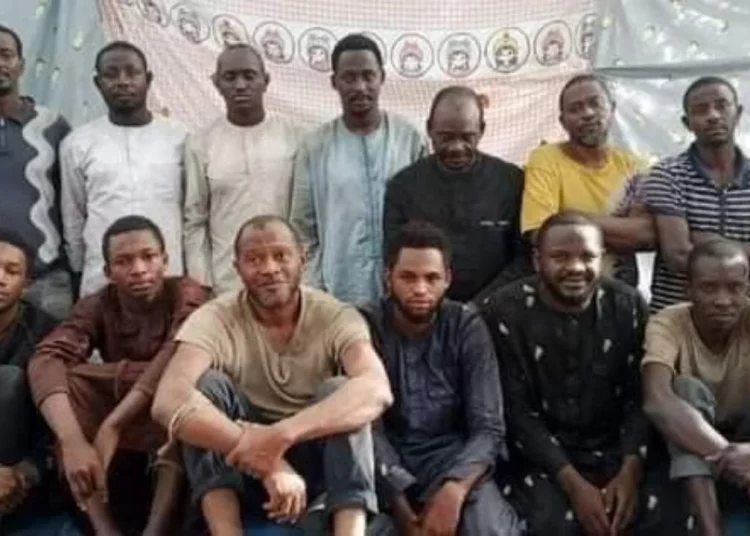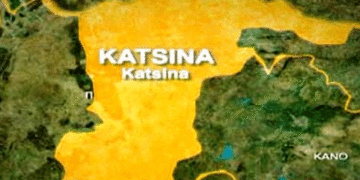Seventy-seven days after the terror attack and abduction of passengers on the Kaduna-bound train, about 50 men, women and children are still languishing in the bandits’ den.
Five days ago, eleven out of the 61 persons abducted in March were released. They were said to have been freed on health grounds in order to enable them undergo urgent medical treatment. They were flown to Abuja after their release.
The ordeal of kidnapping can leave victims agitated, restless and traumatised at the end of the day. Families of the victims have accused the Nigerian government of lackadaisical attitude in handling the matter and not showing much concern for their plight.
On its part, the government has attempted to explain why the train attack victims and other victims have remained in captivity – why the security agencies are not attempting a rescue operation. Its argument is that bandits and terrorists, unlike professional soldiers, do not respect the rules of engagement and could resort to harming hostages when attacked. So the situation is a delicate one that requires wisdom, caution and patience.
The House of Representatives has also called for the rescue of the remaining 50 Nigerians kidnapped in the Abuja-Kaduna train attack and all other Nigerians held hostage by bandits and terrorists across the country.
The House urged the federal government to urgently set up an inter-agency panel to coordinate efforts for the release of citizens in the custody of bandits and terrorists across the country as well as offer help to families of kidnapped persons in accordance with best global practices.
Terrorists Release 11 Abducted Train Passengers, Over 50 Still In Captivity
Section 14(2b) of the 1999 Constitution (as amended) provides that the security and welfare of the people shall be the primary purpose of government; Section 17(2b) of the 1999 Constitution states that the sanctity of the human person shall be recognised, and human dignity maintained and enhanced
In the last 10 years, terrorism, banditry, kidnappings and other forms of violent crimes have become a raging security epidemic in different parts of the country, especially in the North.
According to a recent report by the International Centre for Investigative Reporting (ICIR), since 2018, there has been a rapid increase in kidnapping, with a rise from 987 victims in 2018 to 1,395 in 2019.
Over 70 per cent of victims of kidnappings are children, women and elderly persons who were violently attacked and captured by criminals in the normal course of their daily activities on the farms, villages, roads, worship centres and other places.
Some of these kidnap victims have remained in captivity for so many days, months and years without any form of sustained effort to secure their release or any social, medical or economic support to their grieving family members by government.
There have also been some unresolved cases of kidnappings over the years, including the remnant of the Chibok girls kidnapped in 2014; the kidnap of Leah Sharibu since February 2018; a student of Bethel Baptist High School Kaduna who has spent 348 days; the Federal Government College Birnin Yauri students kidnapped on 21st of October, 2021, among others.
We call on the security agencies to redouble their efforts toward rescuing the victims and reuniting them with their loved ones. Community leaders should also help security agents with information about the activities or movements of criminal groups.
A stronger synergy between security agencies and communities will make a huge difference in defeating banditry and terrorism in the country. Insecurity is constantly evolving, so security agencies have to equally evolve not just to keep up but to stay ahead.
Whatever the government needs to do to rescue the thousands of Nigerias trapped in kidnappers’ lair, it should not hesitate to do so. In a situation hostage crisis, it is not out of place for governments negotiate with terrorists. It does not mean weakness on the part of the government; it simply shows the extent a government can go to rescue its citizens from danger.
The terrorists have made it clear that they would only negotiate with the federal government for the release of the remaining train attack hostages. They are asking for prisoner-exchange. The government should find a way to deal with this. The public does not need to know what efforts are being made behind the scene.
The victims have been suffering for too long and should be rescued forthwith.





